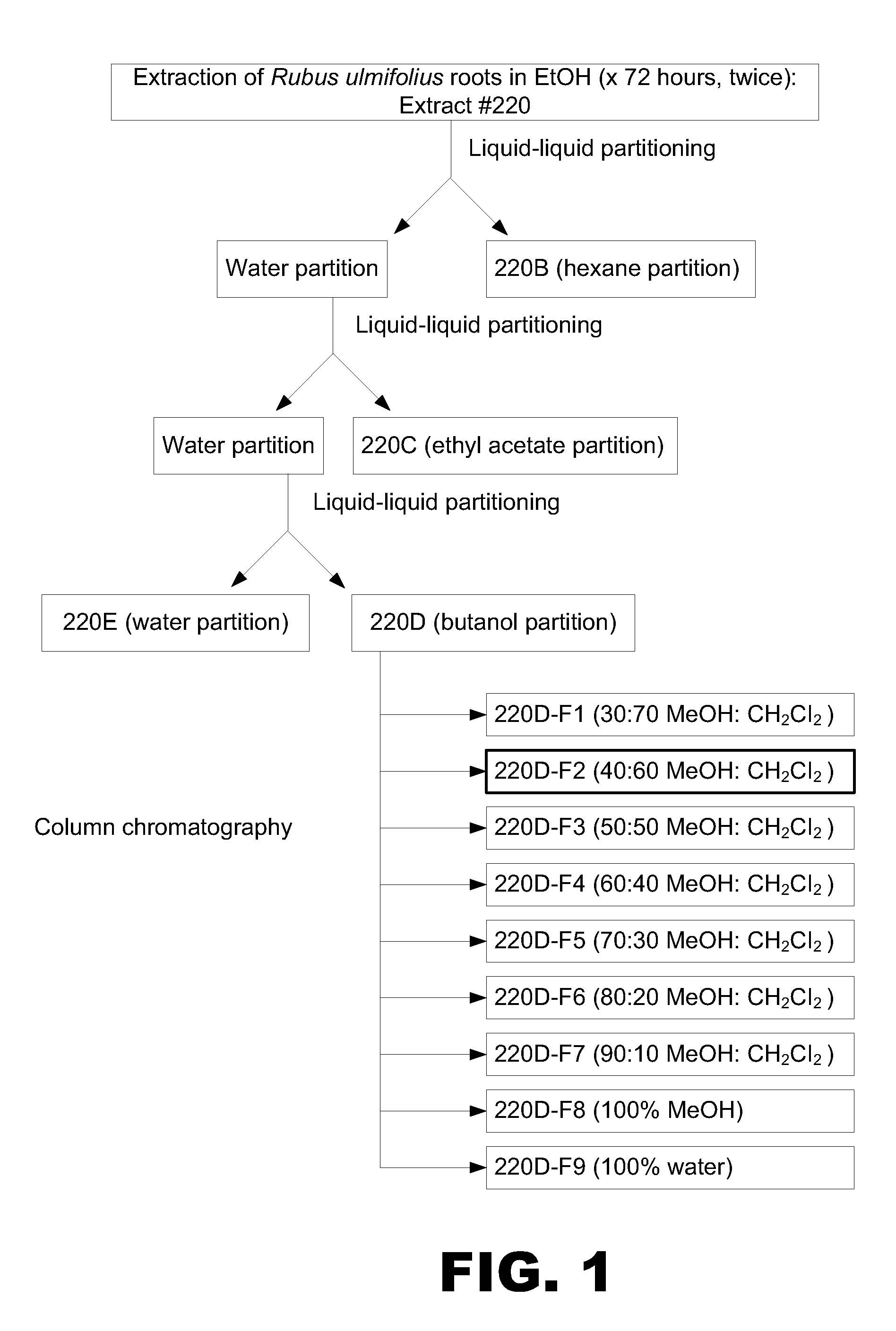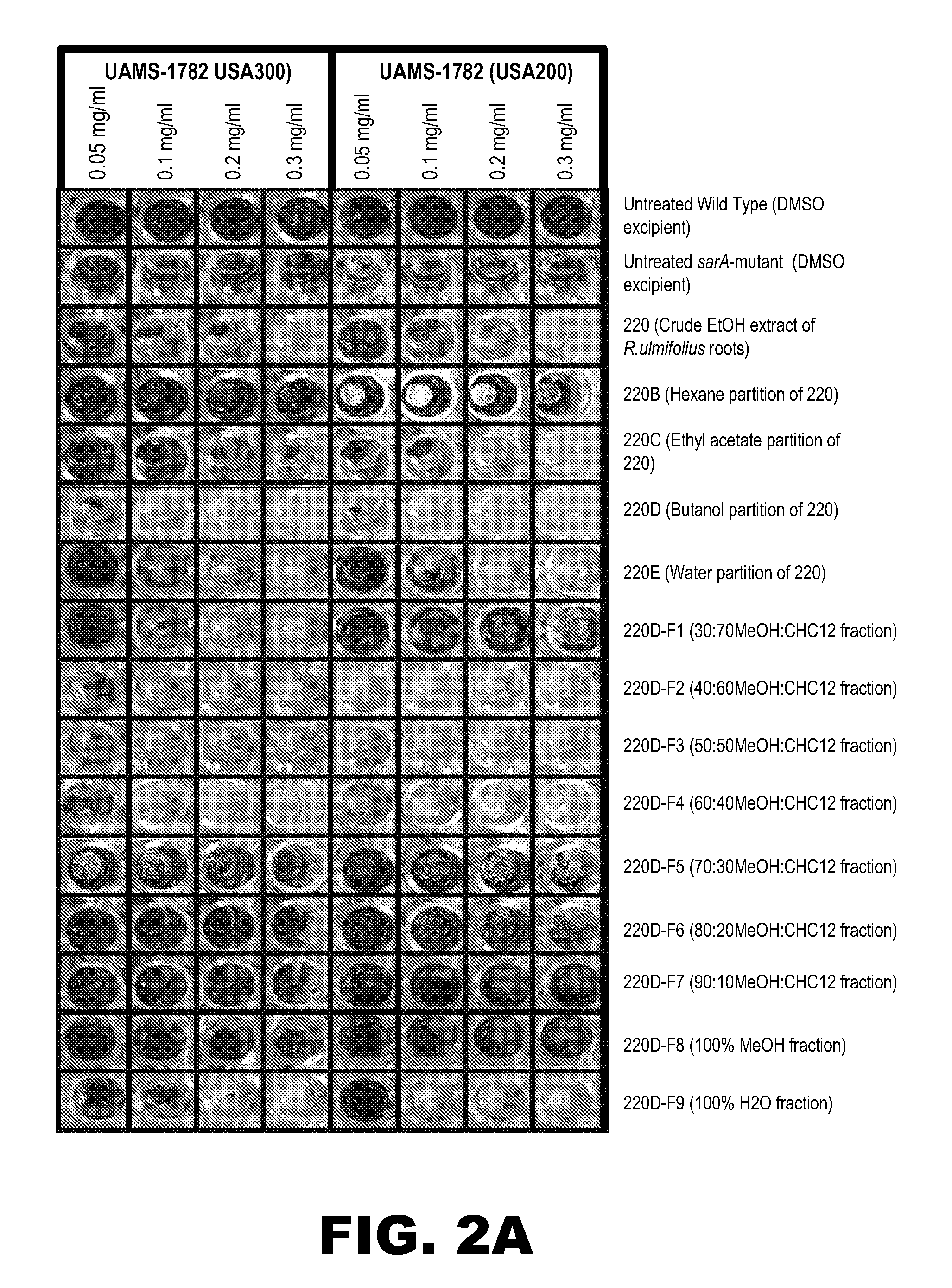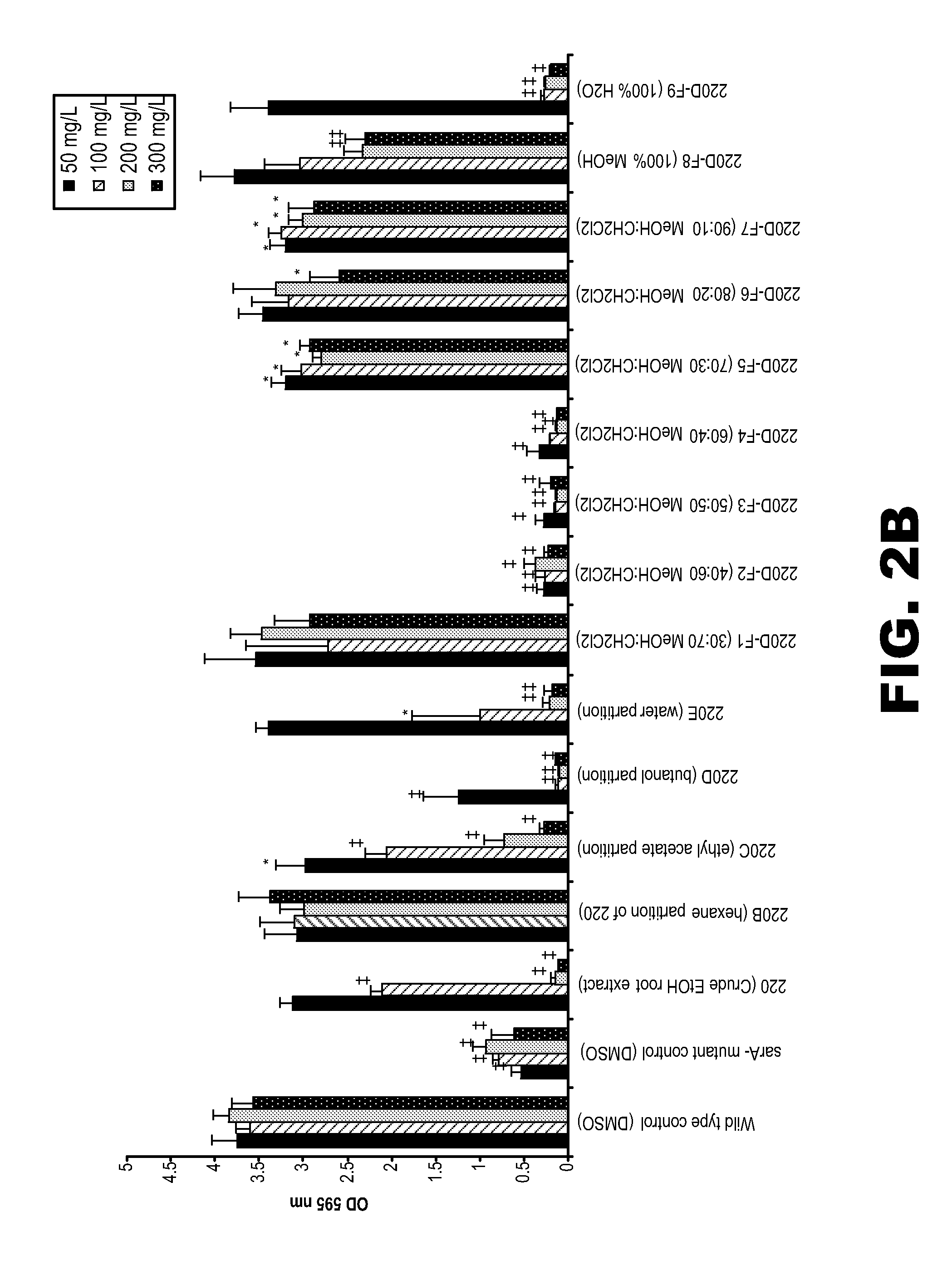Anti-biofilm compositions and methods for using
a technology of compositions and biofilms, applied in the field of biofilms, can solve the problems of i>s. aureus /i>infections that are recalcitrant to antimicrobials, serious, life-threatening infections, etc., and achieve the effect of reducing the number of microorganisms
- Summary
- Abstract
- Description
- Claims
- Application Information
AI Technical Summary
Benefits of technology
Problems solved by technology
Method used
Image
Examples
example 1
Preparation of Phenolic-Rich Fraction from Rubus Ulmifolius Root Extract
[0123]The following example details purification of phenolic-rich fractions from an ethanol extract of Rubus ulmifolius roots. R. ulmifolius is a wild shrub belonging to the rose family that is native to the Mediterranean. Parts of the plant have traditionally been used to treat skin conditions. For example, fresh leaves are topically applied with pork fat in the treatment of skin and soft tissue infections and a decoction of the roots is used as a wash to prevent hair loss. In a recent screening study (Quave et al., 2008, Journal of Ethnopharmacology 118:418-428), crude ethanolic extracts from 104 Italian plants were assessed for their anti-biofilm potential and extracts from R. ulmifolius and nine other species were found to show some promise.
[0124]Acquisition of botanical materials. Bulk samples of R. ulmifolius Schott. (Rosaceae) were collected from wild populations in August 2009 in the village of Ginestra,...
example 2
Prophylactic Anti-Biofilm Activity of Phenolic-Rich Fraction
[0134]The MIC and MDC of the active fraction 220D-F2 was determined essentially as detailed above in Example 1. The prophylactic activity of 220D-F2 to prevent biofilm formation was assessed using the microtiter plate assay essentially as described in Example 1. The prophylactic activity of this fraction was also assessed using an in vitro catheter model. For this, 1 cm catheter sections were inoculated with UAMS-1 in the presence of BM containing 220D-F2 (0.2 mg / mL). After a 24 hr incubation period in the presence of the active fraction, the catheters were processed for plate counts as described above (see Example 1).
[0135]The activity of 220D-F2 was assessed against each of 15 genotypically-diverse clinical isolates of S. aureus. TABLE 1 presents the results.
TABLE 1Activity of 220D-F2 (mg / ml) against wild-type strains of Staphylococcus aureus.USAStrain I.D.Strain I.D. ofTypeof wild typesarA mutantMIC50MIC90MBC50MBC90MBIC5...
example 3
Activity of Phenolic-Rich Fraction Against Established Biofilm
[0139]The following example details the inability of the active fraction 220D-F2 to disrupt an established biofilm, but details the synergistic activity of the active fraction and an antibiotic to limit the growth of cell embedded in an established biofilm. In vitro catheter assays were used to assess biofilm cell viability.
[0140]In vitro catheter assays. UAMS-1 was grown on 1 cm catheter segments as previously described (Weiss et al., 2009b, Antimicrobial Agents and Chemotherapy 53:2475-2482). After 24 hrs, the BM medium was replaced with BM medium containing 220D-F2 (0.2 mg / ml) and / or daptomycin. The concentration of daptomycin used in these experiments was 10-fold higher (10 μg / ml) than the breakpoint MIC (1.0 μg / ml) defined for a daptomycin-sensitive strain of S. aureus by the Clinical and Laboratory Standards Institute (CLSI). The medium was replaced in its entirety at 24 hr intervals for 7 days. The therapeutic resp...
PUM
| Property | Measurement | Unit |
|---|---|---|
| time | aaaaa | aaaaa |
| time | aaaaa | aaaaa |
| concentration | aaaaa | aaaaa |
Abstract
Description
Claims
Application Information
 Login to View More
Login to View More - R&D
- Intellectual Property
- Life Sciences
- Materials
- Tech Scout
- Unparalleled Data Quality
- Higher Quality Content
- 60% Fewer Hallucinations
Browse by: Latest US Patents, China's latest patents, Technical Efficacy Thesaurus, Application Domain, Technology Topic, Popular Technical Reports.
© 2025 PatSnap. All rights reserved.Legal|Privacy policy|Modern Slavery Act Transparency Statement|Sitemap|About US| Contact US: help@patsnap.com



